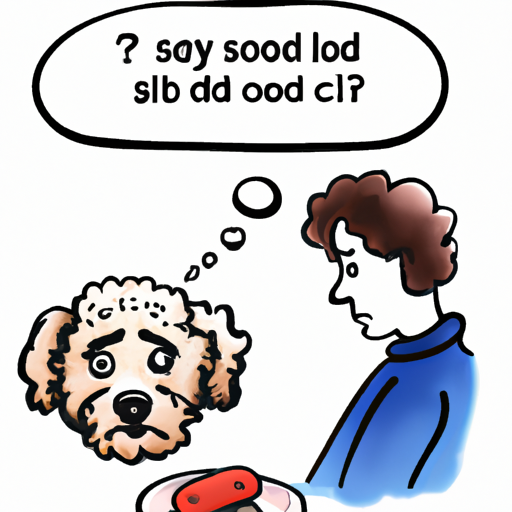As a caregiver for your beloved pet, you may often wonder if it’s okay to share your dinner with them. The question “Is human food bad for dogs?” is a common one for dog owners and the answer isn’t as straightforward as you might think. Let’s delve into this topic in detail to understand more about the implications of feeding human food to dogs.
Understanding Dog’s Dietary Needs
Dogs are omnivores, which means they can eat a mixture of meat and plant-based foods. However, their nutritional requirements differ from ours. Dogs need a balanced diet of:
- Protein (for muscle and tissue growth)
- Carbohydrates (for energy)
- Fats (for a shiny coat and healthy skin)
- Vitamins and minerals (for various bodily functions)
These requirements are usually met by commercial dog food. When introducing human food, it must be done with caution and understanding of these needs.
Human Foods That Are Safe for Dogs
There are several human foods that are perfectly safe for dogs and can be added to their diet for variety or as a treat. They include:
- Lean meats: Such as chicken, turkey, and fish which are great sources of protein.
- Fruits and vegetables: Apples, bananas, carrots, and cucumbers are safe for dogs and offer a variety of vitamins and minerals.
- Rice and pasta: These can provide a good source of energy.
However, these should be served in moderation and shouldn’t replace a balanced diet.
Human Foods That Are Harmful for Dogs
On the flip side, there are several human foods that are potentially harmful or even deadly to dogs. Here’s a table to help you remember:
| Human Food | Why It’s Harmful |
|---|---|
| Chocolate | Contains theobromine, which is toxic to dogs. |
| Grapes and Raisins | Can cause kidney failure. |
| Onions and Garlic | Can damage red blood cells and cause anemia. |
| Alcohol | Can cause vomiting, seizures, and even death. |
| Caffeine | Can be fatal and there is no antidote. |
| Xylitol (found in sugar-free foods) | Can cause liver failure and hypoglycemia. |
The Risk of Obesity and Other Health Issues
Feeding dogs too much human food can lead to obesity and other health issues. Dogs don’t necessarily know when to stop eating, and some foods (like fats and sugars) that are high in calories can quickly lead to weight gain. Over time, this can result in diabetes, heart disease, and other serious health problems.
Potential Behavioral Issues
Feeding your dog human food can also lead to behavioral issues. Dogs may start begging for food, refusing to eat their regular dog food, or even stealing food from the table. These behaviors can be difficult to correct once established.
How to Introduce Human Food Safely
If you decide to introduce human food to your dog’s diet, do it slowly and in small quantities. Always research or ask your vet before feeding your dog a new type of food. And remember, moderation is key.
The Bottom Line
While some human foods can be safely given to dogs, it’s important to know which ones are harmful. Always prioritize a balanced diet tailored to your dog’s nutritional needs over human food.
FAQs
Q: Can I feed my dog leftovers?
A: It depends on what the leftovers are. Avoid feeding your dog food that is high in fat, salt, or sugar and never feed them food that is toxic to them.
Q: Why does my dog prefer human food?
A: Human food is often more flavorful than dog food, which can make it more appealing. However, it’s important to ensure your dog is eating a balanced diet.
Q: Can I cook for my dog instead of buying commercial dog food?
A: Yes, but it’s important to ensure you’re providing a balanced diet. Consult with a veterinarian or a pet nutritionist before switching to homemade food.
Q: Is it okay to feed my dog fruits and vegetables?
A: Yes, many fruits and vegetables are safe for dogs. However, some can be harmful, so it’s important to do your research first.
In conclusion, while it’s okay to occasionally treat your dog to some human food, it’s important to do so responsibly. Keep their health and well-being at the forefront of your decision-making process as you care for your furry friend.



